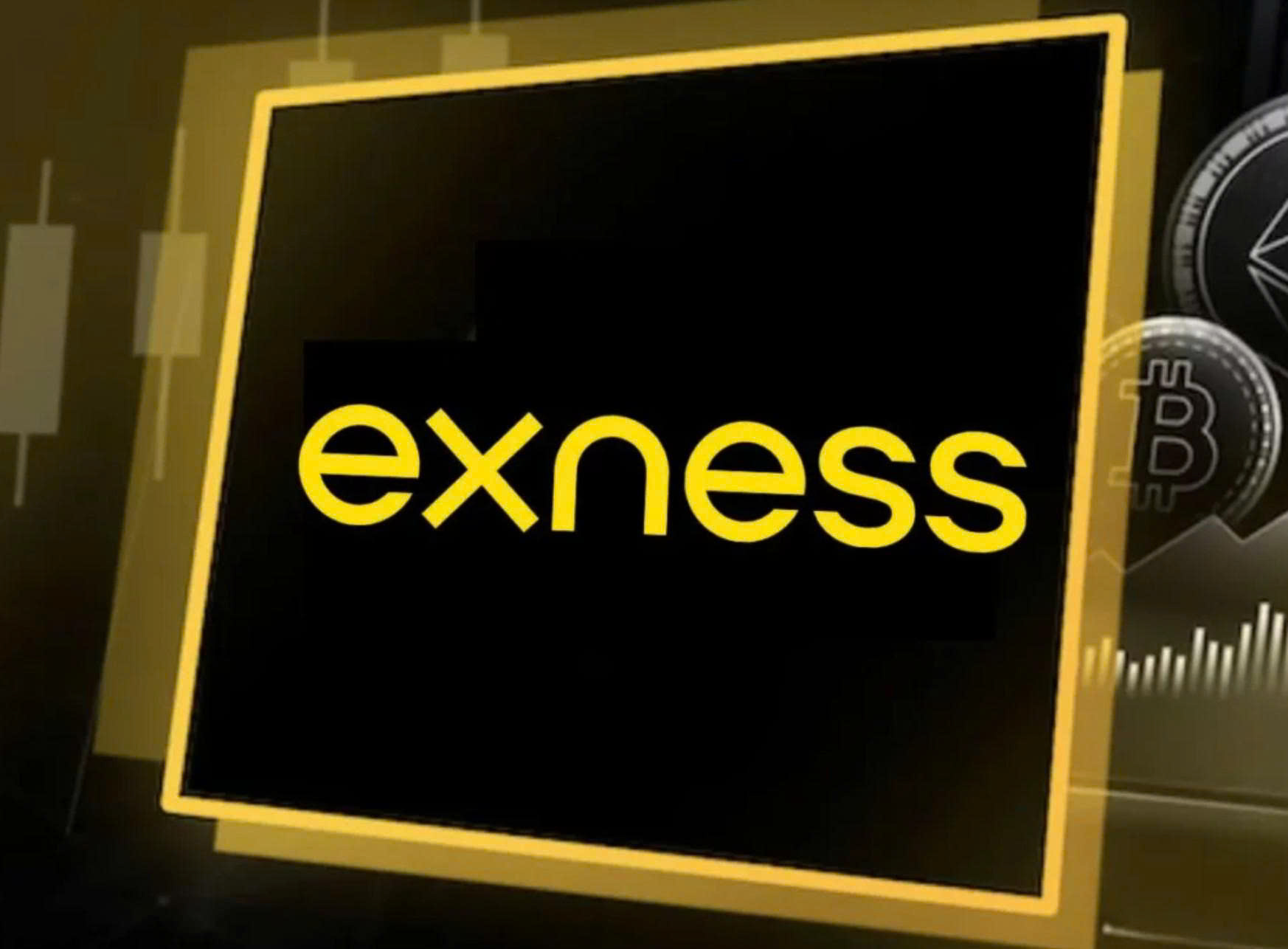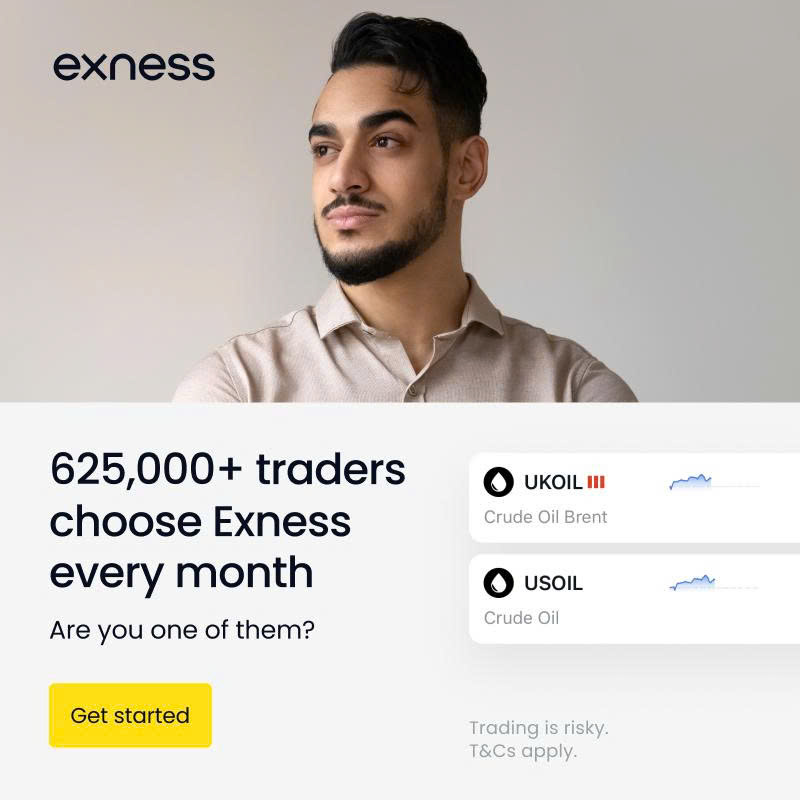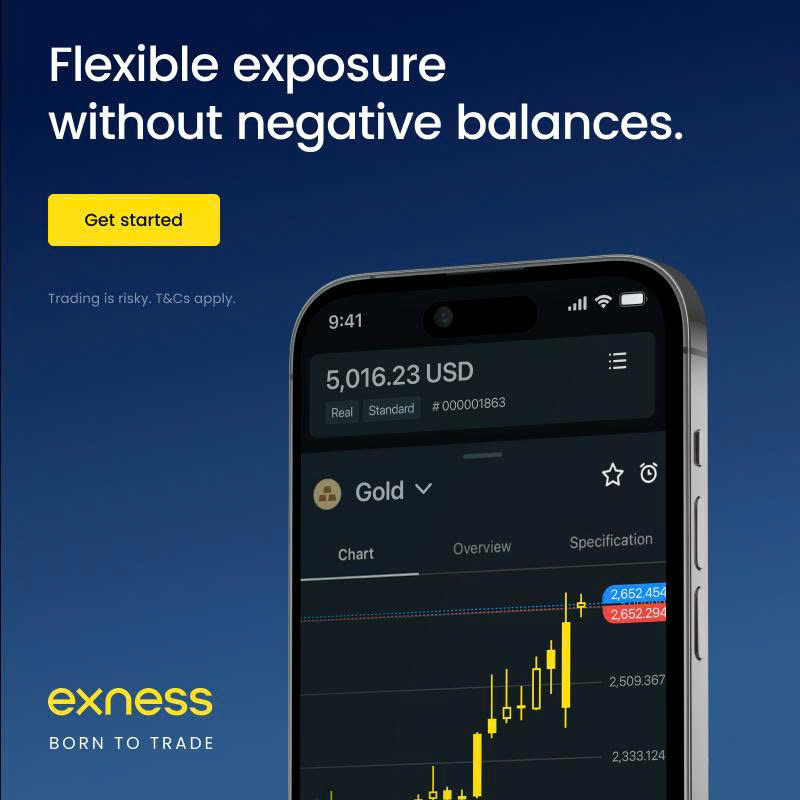
8 minute read
Is Exness Regulated in Philippines? A Clear Guide for Filipino Traders
from Exness Philippines
If you’re a Filipino trader eyeing Exness as your go-to forex broker, you’re probably wondering: Is Exness regulated in Philippines? The short answer is no, Exness is not directly regulated by Philippine authorities like the Securities and Exchange Commission (SEC) or the Bangko Sentral ng Pilipinas (BSP). However, it operates legally under international licenses from reputable regulators, making it a safe and viable option for Filipinos. In this article, I’ll break down everything you need to know about Exness’s regulatory status, its safety for Filipino traders, and why it’s worth considering. Let’s dive in!

✅ Trade with Exness now: Open An Account or Visit Brokers 👈
Understanding Exness: A Quick Overview
Exness is a global forex and CFD broker founded in 2008, headquartered in Cyprus. With over 1 million active clients across 190+ countries, it’s a heavyweight in the trading world. Known for tight spreads (starting at 0.1 pips), high leverage (up to 1:2000 or even unlimited), and fast withdrawals, Exness appeals to both newbies and pros. It offers trading on forex, commodities, indices, cryptocurrencies, and stocks through platforms like MetaTrader 4 (MT4), MetaTrader 5 (MT5), and its own Exness Terminal.
For Filipino traders, Exness stands out because of its low entry barriers (Standard accounts start at just $1) and localized payment options. But before you jump in, let’s address the elephant in the room: regulation.
Why Regulation Matters in Forex Trading
Regulation is the backbone of a trustworthy broker. It ensures your funds are safe, trading is transparent, and you have recourse if things go south. In the Philippines, two key bodies oversee financial activities:
Securities and Exchange Commission (SEC): Regulates securities and investment activities, including forex brokers, to ensure transparency and compliance with anti-money laundering (AML) laws.
Bangko Sentral ng Pilipinas (BSP): Monitors foreign exchange transactions to prevent illegal activities and maintain economic stability.
The catch? The Philippines has a complex regulatory environment, and few local brokers exist due to strict licensing requirements. As a result, many Filipinos turn to international brokers like Exness. But does this make Exness illegal or unsafe? Not at all—let’s explore why.
Is Exness Regulated in the Philippines?
Here’s the deal: Exness is not directly regulated by the Philippine SEC or BSP. It doesn’t hold a local license to operate as a broker in the Philippines. However, this doesn’t mean it’s banned or illegal. There’s no explicit prohibition preventing Filipinos from trading with international brokers like Exness, as long as they comply with local laws, such as reporting forex transactions and paying taxes on profits.
Instead of local regulation, Exness operates under licenses from several top-tier international regulators. These include:
Financial Conduct Authority (FCA), UK: One of the world’s strictest regulators, ensuring client fund protection and transparency. Note that Exness (UK) Ltd primarily serves institutional clients, not retail traders in the Philippines.
Cyprus Securities and Exchange Commission (CySEC): Another respected regulator enforcing high standards. Like the FCA, this entity focuses on institutional clients.
Financial Services Authority (FSA), Seychelles: Exness (SC) Ltd, which serves Filipino retail traders, is regulated by the FSA. This provides a layer of security, though it’s considered an offshore regulator.
Financial Sector Conduct Authority (FSCA), South Africa: Adds to Exness’s global compliance.
Financial Services Commission (FSC), Mauritius and British Virgin Islands: Further ensures adherence to international standards.
Capital Markets Authority (CMA), Kenya: Demonstrates Exness’s commitment to regulatory compliance across regions.
These licenses mean Exness follows strict international standards, including segregating client funds, undergoing regular audits (by Deloitte, a Big Four accounting firm), and implementing robust AML and KYC protocols. For Filipino traders, this translates to a secure trading environment, even without local oversight.

✅ Trade with Exness now: Open An Account or Visit Brokers 👈
Is Exness Legal for Filipino Traders?
Yes, Exness is legal for Filipino traders to use, provided you follow BSP rules on foreign exchange transactions and comply with tax obligations. The SEC often issues advisories warning against unregistered foreign brokers, but Exness isn’t specifically targeted, and its global licenses add credibility. The lack of local regulation means you might have limited recourse in disputes, but Exness’s strong international framework minimizes this risk.
Think of it like this: trading with Exness is like buying from an international online store. It’s legal, but you need to ensure you’re following Philippine customs and tax rules. As long as you do, you’re in the clear.
Why Choose Exness as a Filipino Trader?
Exness has a lot to offer Filipino traders. Here’s why it’s a solid choice:
1. Competitive Trading Conditions
Exness is known for low spreads (as tight as 0.0 pips on Raw Spread accounts) and flexible leverage options. Whether you’re trading forex pairs like EUR/USD or cryptocurrencies like Bitcoin, you’ll enjoy cost-effective trading. Standard accounts have no commissions, while Pro and Zero accounts cater to experienced traders with ultra-tight spreads.
2. Low Entry Barrier
You can start trading with just $1 on a Standard account, perfect for beginners. For more advanced traders, accounts like Raw Spread or Zero require a $200 minimum deposit but offer premium conditions.
3. Localized Support
Exness supports Filipino traders with local payment methods, including bank transfers and debit/credit cards from Philippine banks. Its customer service is available 24/7 via live chat, email, and phone, with multilingual support for Tagalog speakers.
4. Robust Platforms
Choose from MT4, MT5, or the Exness Terminal (available as a web platform or mobile app). These platforms offer advanced charting, Expert Advisors (EAs), and one-click trading, catering to all trading styles.
5. Fast Withdrawals
Exness processes withdrawals instantly, ensuring you can access your funds quickly. This is a big plus for traders who value liquidity.
6. Educational Resources
New to trading? Exness offers webinars, video tutorials, market insights, and a demo account to practice risk-free. These resources help you build confidence before diving into live trading.
7. Safety Features
Exness prioritizes client security with:
Segregated accounts: Your funds are kept separate from the company’s operational funds.
Negative balance protection: You can’t lose more than your deposit, protecting you in volatile markets.
Regular audits by Deloitte: Ensures financial transparency.
Are There Any Downsides?
No broker is perfect. Here are a few things to consider:
No Local Regulation: The lack of SEC or BSP oversight means you’ll rely on international regulators in case of disputes. This isn’t a dealbreaker, but it’s worth noting.
High Leverage Risks: Leverage up to 1:2000 can amplify profits but also losses. Beginners should stick to lower leverage to manage risks.
No Local Office: Exness doesn’t have a physical office in the Philippines, so support is online or phone-based.
Inactivity Fees: If your account is dormant for too long, you might face charges, so stay active or close your account if you’re not trading.
How to Get Started with Exness in the Philippines
Ready to trade with Exness? Here’s a quick guide:
Register: Visit the Exness website, select your country (Philippines), and fill in your details (email, password, etc.).
Choose an Account: Pick from Standard, Standard Cent (great for beginners), Raw Spread, Zero, or Pro accounts based on your experience and budget.
Verify Your Identity: Submit a valid ID (e.g., passport or driver’s license) and proof of address. Verification typically takes up to 48 hours.
Deposit Funds: Use local bank transfers, debit/credit cards, or e-wallets. The minimum deposit is $1 for Standard accounts.
Start Trading: Download MT4, MT5, or use the Exness Terminal to begin trading forex, crypto, or other instruments.
Pro tip: Start with a demo account to test strategies without risking real money.
Is Exness Safe for Filipino Traders?
Exness is widely regarded as a safe broker. Its regulation by multiple authorities (FCA, CySEC, FSCA, etc.), segregated client funds, negative balance protection, and regular audits by Deloitte ensure a high level of security. While it’s not locally regulated, its global compliance and transparency make it a trustworthy choice for Filipinos.
However, always do your due diligence. Check the broker’s licenses, read user reviews, and ensure you understand the risks of forex trading, especially with high leverage. The SEC’s warnings about unregistered brokers are a reminder to stay cautious, but Exness’s track record speaks for itself.
Final Thoughts: Should You Trade with Exness?
Exness is a legitimate, safe, and reliable option for Filipino traders, despite not being regulated by the SEC or BSP. Its international licenses, competitive trading conditions, and user-friendly platforms make it a top choice for both beginners and pros. The low minimum deposit, fast withdrawals, and localized support are especially appealing for Filipinos looking to explore global markets.
That said, trading with an offshore broker comes with risks, like limited local recourse in disputes. To stay safe, comply with BSP regulations, use Exness’s demo account to practice, and start with low leverage if you’re new. If you’re ready to trade, Exness offers a solid platform to grow your wealth—just make sure you’re informed and prepared.
✅ Trade with Exness now: Open An Account or Visit Brokers 👈
Read more:

